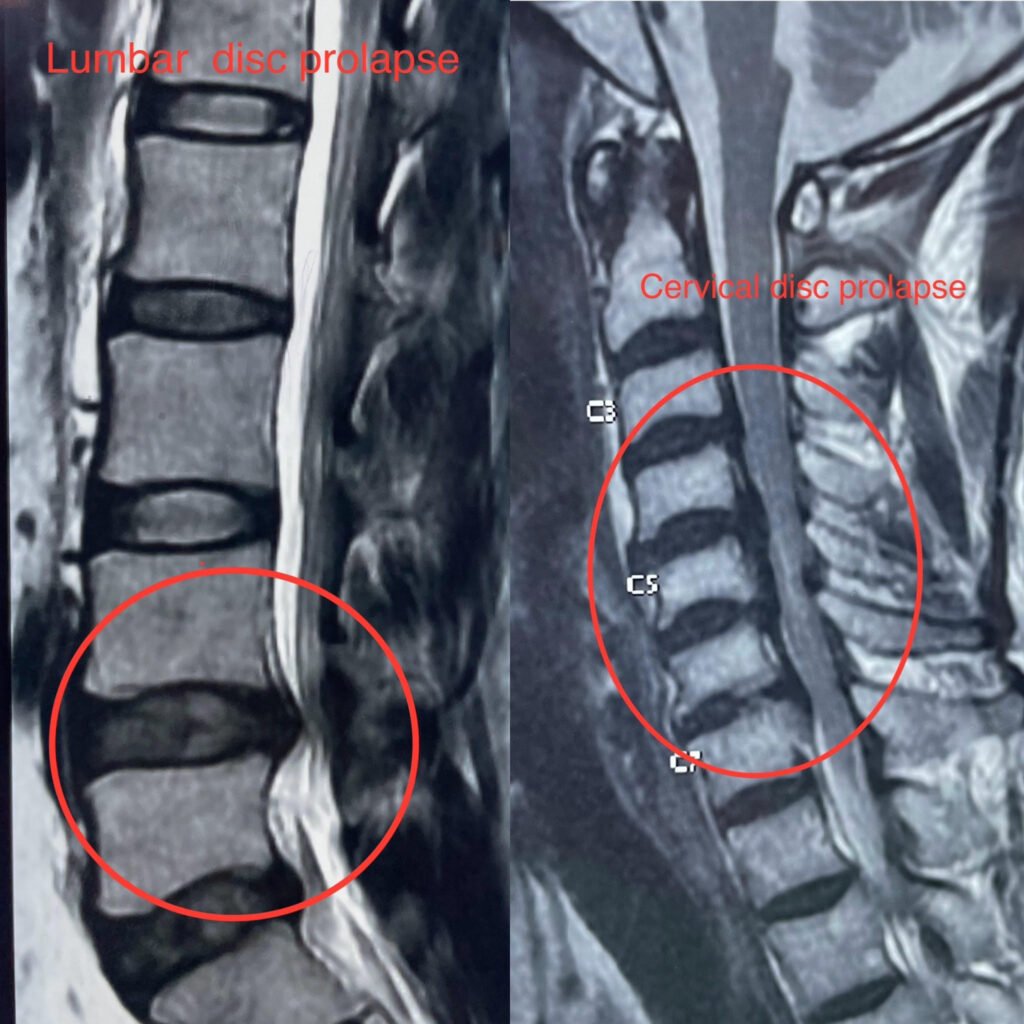Disc Prolapse

What is it?
Disc Prolapse, also known as a herniated disc or slipped disc, occurs when the soft inner core of a spinal disc protrudes through the tough outer layer. This can irritate nearby nerves and cause pain, numbness, or weakness in the affected area.
Symptoms:
- Symptoms of Disc Prolapse can vary depending on the location and severity of the herniation.
- Common symptoms may include back pain, neck pain, radiating pain into the arms or legs (sciatica), numbness or tingling, muscle weakness, and changes in bowel or bladder function (in severe cases).
Primary Symptoms:
The primary symptoms of Disc Prolapse may include:
- Sharp or shooting pain that radiates down the arm or leg.
- Numbness or tingling sensation in the affected area.
- Muscle weakness, especially in the arms or legs.
- Pain that worsens with movement, coughing, or sneezing.
- Difficulty standing, walking, or performing daily activities.
Diagnosis/Treatment:
- Diagnosis typically involves a physical examination, medical history, and imaging studies such as X-rays, CT scans, or MRI.
- Treatment options may include rest, medication (such as pain relievers or muscle relaxants), physical therapy, epidural steroid injections, and in severe cases, surgery to remove the herniated portion of the disc (discectomy) or stabilize the spine.
What to Expect After Surgery:
- After surgery for Disc Prolapse, patients can expect relief from symptoms such as pain, numbness, and weakness.
- Recovery time varies depending on the type of surgery and the individual patient, but most patients can expect to gradually improve over several weeks to months.
- Physical therapy may be recommended to help strengthen the muscles supporting the spine and improve flexibility and range of motion.
Risks & Complications:
- As with any surgery, there are risks associated with procedures to treat Disc Prolapse, including infection, bleeding, nerve injury, spinal fluid leakage, and recurrence of symptoms.
However, complications are relatively rare, and the benefits of surgery often outweigh the risks, particularly when conservative treatments have failed to provide relief or when there is a risk of permanent nerve damage without surgical intervention.
Spine Treatments
About Dr. Bharat
Dr Bharat Shinde completed his M.Ch Neurosurgery from the National Institute Of Mental Health And Neurosciences (NIMHANS), Bangalore which is an institute of National importance.
